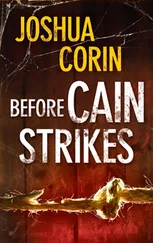Joshua Cohen - Witz
Здесь есть возможность читать онлайн «Joshua Cohen - Witz» весь текст электронной книги совершенно бесплатно (целиком полную версию без сокращений). В некоторых случаях можно слушать аудио, скачать через торрент в формате fb2 и присутствует краткое содержание. Год выпуска: 2010, Издательство: Dalkey Archive Press, Жанр: Современная проза, на английском языке. Описание произведения, (предисловие) а так же отзывы посетителей доступны на портале библиотеки ЛибКат.
- Название:Witz
- Автор:
- Издательство:Dalkey Archive Press
- Жанр:
- Год:2010
- ISBN:нет данных
- Рейтинг книги:3 / 5. Голосов: 1
-
Избранное:Добавить в избранное
- Отзывы:
-
Ваша оценка:
- 60
- 1
- 2
- 3
- 4
- 5
Witz: краткое содержание, описание и аннотация
Предлагаем к чтению аннотацию, описание, краткое содержание или предисловие (зависит от того, что написал сам автор книги «Witz»). Если вы не нашли необходимую информацию о книге — напишите в комментариях, мы постараемся отыскать её.
Meanwhile, in the not-too-distant future of our own, “real” world, another last Jew — the last living Holocaust survivor — sits alone in a snowbound Manhattan, providing a final melancholy witness to his experiences in the form of the punch lines to half-remembered jokes.
Witz — читать онлайн бесплатно полную книгу (весь текст) целиком
Ниже представлен текст книги, разбитый по страницам. Система сохранения места последней прочитанной страницы, позволяет с удобством читать онлайн бесплатно книгу «Witz», без необходимости каждый раз заново искать на чём Вы остановились. Поставьте закладку, и сможете в любой момент перейти на страницу, на которой закончили чтение.
Интервал:
Закладка:
Embrace what you’ve forsaken, the Guide guides, and they’re guided: this is just fascinating…
A trainful of them disembarks outside the Cemetery, about onehundred strong if weakened families with little ones mostly, only a few unattached, singlestoured, apprehensively lonely, unsure whom to beg for their comfort. Among them is Kaye, pale, darkhaired slickly struck down, tall, thin, and alert, impatient to visit the grave here of a fellow insurance mensch, a hero of his from the days of his very first policy. A brother worker in the service of adjustment, assessing liability, a companion in the divine office of limiting risk. Weather’s coming blown so regularly harsh it feels almost manufactured, machined, whips across his face, he squints, slowly makes his way across the street from the trainstop, toward the Gate. A pilgrimage. All those days of scrimping and saving were worth it, he thinks, have to be, he’s convincing, and now that I’m here, I’d better enjoy while it lasts. He heads up his laggard trainload in their march, keeps pace with their Guide who — with an order to them to wait at the gate for their Guide to the cemetery, because here, everything’s specialized — leaves them with a flourish of her umbrella to attend to yet another Group now doing the shuls, which are the synagogues, the houses in which these people once prayed. Hoping silently that nothing should disturb his Grave audience, Kaye’s intending to appeal for an exception, maybe a divine intervention, perhaps his merit for my predicament — even a few sales tips while we’re at it, useful if he would survive, if he could, advice regarding indemnity as if that were a theological issue, a coupla policy pointers. In his pocket, a scrap of paper folded thrice, company letterhead lined with strict, anxious handwriting that resembles the remains of insects swatted, squashed: a message for the mensch in the Grave, it’s a last will & testament, too, in addition to not a few other things; once inside, if inside, Kaye might use it for a yarmulke, a backup, just in case — he’s not in insurance for nothing.
Through the fence streaming its wall from both sides of the gate, through the inkdark smears and smudges of bars, everything muddled falls into focus: a lavabo to the left, a lavabo’s for the washing of hands…then, a vessel filled with tiny rocks ground down to pebbles positioned to the right, those are for placing atop the stones, the stele, the tombs; he’s prepared. Kaye tries the handle to the door set into the gate, tries again, grimaces wrinkles to an appearance older than he’ll ever live, to grow into his face to hide whether a blush or a blanch, turns to his trainload to ask for assistance, meekly, open of palm. Out of nowhere, there’s a mensch. His is the uniform of two wars ago or so that were never reported (who ever knew, the question every Group asks itself), a medal of uncertain insignia weighs as heavily as a head itself, decapitated, scalped to hang its shine from a scrap of ribbon a filmreel strangling a neck that’s scrawny, and mutual; that old sharp beak peeking from a bifurcate beard, one for you, one for him; onelegged, too, he feels deserving, and so he’s demanding an admission fee, supplementary, wordless, with his hands out, a sum additional to that of their entrance, which’d supposedly been allinclusive, extracted from each of them previously. Kaye shows the mensch his armband, reaches an arm through the bars, then, retracting to roll up the other sleeve, his tattoo, glossy with ointment lately applied, and then from his pockets, his documents disappeared of ink, everything he can think of, anything even remotely indicative of officialdom, of payment in full, but the mensch won’t understand, he couldn’t…he scratches his head, hops around in irrritation on the spring of his stump.
Anyway, says Kaye, cemeteries don’t have entrance fees…it only costs when you want to get in and stay in forever, that and a stone with your name on it spelled right, with the date — then a woman, thicklipped, frizzled, adds: they shouldn’t anyway, it’s not right, it’s a sin; we’re going to have to report you to Management. I’m sorry to ask, what’s your badge number, your name?
The mensch nods to second his silence, again shows his hands: tremulant, knurly; he grips the bars with one, keeps cupped the palm of the other as if to save in it weather with which to wash the dirt from his face; the trainload searches its pockets, a sprinkle of lint, as the mensch brings that hand back to pick at his teeth, with the teeth of a huge iron key, kept roped around his gluttonous waist.
But we came all this way just for this, Kaye protests.
No, says the mensch in their language, perfectly, without accent — you didn’t come, you were brought.
I’ll have you know, Kaye’s not listening to him, only to himself and that woman behind, whoever she was, how he’d like to know, that this armband entitles me to entrance anywhere within the borders of Polandland, then he nods admiringly to her, though it’s him who’s blushing. I’m prepared to talk to the Manager personally, he’s threatening, he’s not, if we’re unable to reach a solution.
The mensch lays a hand on Kaye’s shoulder, the shaky arm slung between the bars, with the other pokes at his own stomach with the tip of the key. Have a nosh, he says, a little to eat: you all look so hungry, so thin. Then, come back in an hour.
An hour, the woman asks, disbelief in the twitch of her nose that’s either repellent or enough to snare you for life — do we have that much time?
There are many fine restaurants in the area. Might I recommend one? It’s regional specialties you’re in the mood for, am I right?
Kaye graves his hands into his pockets, kicks a heel into the mud, turns from the gate only after his trainload’s dispersed: only after many have lifted themselves up on their tiptoes to peer over the low falling fence, a few attempting to decipher the inscriptions in an alphabet foreign, in a few alphabets equally foreign, abbreviated then acronymed to unintelligibility, dazzled into diacritics forgotten: acutes, graves, breves, carons, hooks and horns, dots and diaereses…it’s not that they’ll never understand, rather it’s that these invocations will always only make sense to the dead: a readership as obsolete as the language in which they’re left reading themselves — they’ll be literate in no time, give them a night. And yet, a flurry of bicker, of entitled complaint: some whine in hot whispers, others moan, then quietly enough dissipate into silence so as not to offend the sensibilities of Management (who or whatever that is, if undivine, though merciless), their observant Gates, their surveillant trees: the weather, the service, can you believe, the accommodations, the food; then, they go eat.
Their houses are emptied, almost, nearly, of all their valuables, worldly; repositories of remnants lie locked and alarmed: locked against an illimitable force, feebly, foolishly, alarmed against an emergency any response to which can only be probable cause. No deterrent. Nothing can be protected from putrefaction; there has never been any safeguard against taint. A red cancel to blemish the summons. Only open wounds on the tractearth, gashes of infecting possession, festering forlornly in the latemorning sunfrost: food rots in the refrigerator; the fridge and the freezer the twoheaded unit, huge, idolatrous, rots in the open kitchen like an unfilled, welltongued tooth cracked black down the middle of the stinky sink of a mouth that’s told nothing but lies, that’s prayed only to the wrong God for curses. A dozen indentations for eggs on a shelf at eyelevel, empty save unidentifiable stickiness, enspidered. And the refrigerator, the freezer, hums in the mouth, the hum shakes everything loose, rattles fillings domestic: the windows, the shutters, the pantries, cupboards and cabinets their wares flattened out into steps down the stoop toward the slates, the supports, the foundations, the earth below the concrete; and the food rots into smell and the smell rots into room, a wall of smells, walls, a sink of smells, a floor undusted, splotched, dulling, fading, evanescent as dulled, ephemeral as faded, becoming formless as the rot soon usurps, replaces its form: bathrooms of mold, ceilings of fuzz; the siding weathers, blighted cedar shingling (with not even the larvæ or the moths still surviving, whose nests Israel would shoot out with water from hoses, or ash with a torch lit from headlines), the morning newspapers mound on the porches, soak into one great rising page, as the weather weathers itself and the evening editions of newspapers, a mass of wet print blacker than blood: Problem Nearly Solved , says the subhead, Shade to Address General Assembly Meeting of Sanhedrin Today …mail mounds in the mailbox or is held in perpetuity at the postoffice where a few, responsibly, have thought to stop it, ridiculous, too many bills, collection agency notices, magazines, catalogs and bills, always more, always too, unsolicited; lights switch on on a timer, switch off again then again on timers, sprinklers switch on on a timer, switch off, it rains, it pours rain, sprinklers switch on yet again, and then snow; the house settles, the settle settles, the earth swallows the house rotted above deeper down, a sinkhole, a pit; lights switch on with the moon, off with the sun; the keys rest under the welcomemats, a grinding of teeth with the wipe of strange feet; it stops raining, snow, no one shovels, no one sweeps, forget mops — maids have off, depends, or have been brought along, too, attending even in death, tending to the little ones to the end, a last tantrum of breath…sprinklers switch off or are frozen, immobile, the settling of the settle sinks down even more, kneemud then up to the pits, hipwading slime to the sidewalk, deeper the street; grass grows into weeds, unweeded, seeding themselves; telephone rings, machines pick up, a message is left or is not — tears; lights switch off then on again and then off and then, die. A waste of energy, wasted. Affiliated neighbors, many of them let down their shades, will themselves to ignore; an intrepid few gaze out their windows: at the lawns wrecked with neglect, strewn with the rusted carapaces of bicycles, tricycles, left leaves chattering cycles in the spokes of wheels blown onward nowhere by wind — and the oven’s timer, the stove’s watch, someone set for something, it just ticks and ticks, and they tock. Looting wagons, many of them in the northeast, at least, licensed to a certain Johannine familyowned Moshe’s Movers, proud recipients of a government contract courtesy of a friend of a friend — they’re backedup into driveways, they’re being loaded, they’re taking everything left: these schleppers, what aren’t they doing, what aren’t they responsible for; they’re smashing up a last idolette of the Virgin out on the lawn, they’re repoing the samplers, wrapping ornament valuables fragile in tissue, then hauling all of it out; what’s left that the neighbors aren’t holding onto for the hope of return, they promise, it’s just for safekeeping…
Читать дальшеИнтервал:
Закладка:
Похожие книги на «Witz»
Представляем Вашему вниманию похожие книги на «Witz» списком для выбора. Мы отобрали схожую по названию и смыслу литературу в надежде предоставить читателям больше вариантов отыскать новые, интересные, ещё непрочитанные произведения.
Обсуждение, отзывы о книге «Witz» и просто собственные мнения читателей. Оставьте ваши комментарии, напишите, что Вы думаете о произведении, его смысле или главных героях. Укажите что конкретно понравилось, а что нет, и почему Вы так считаете.












